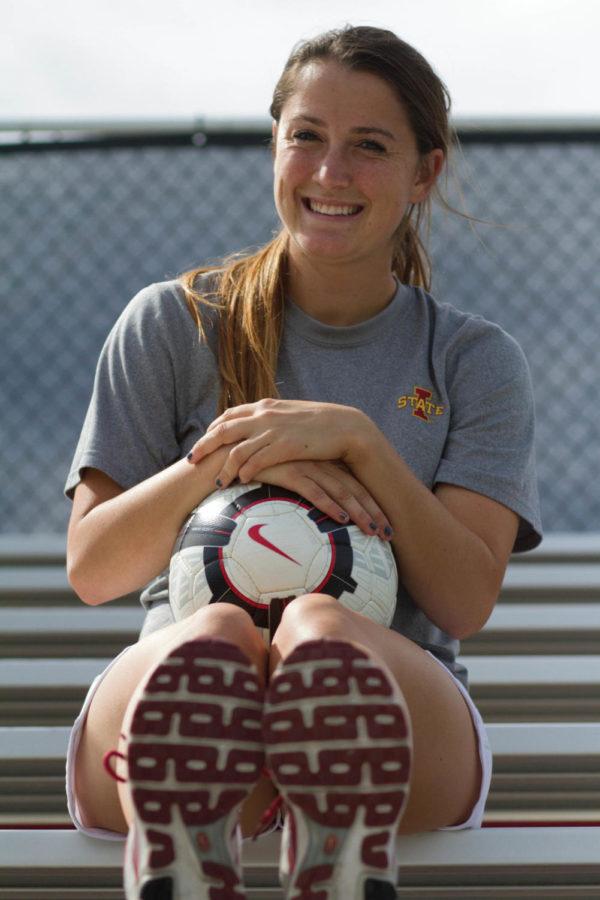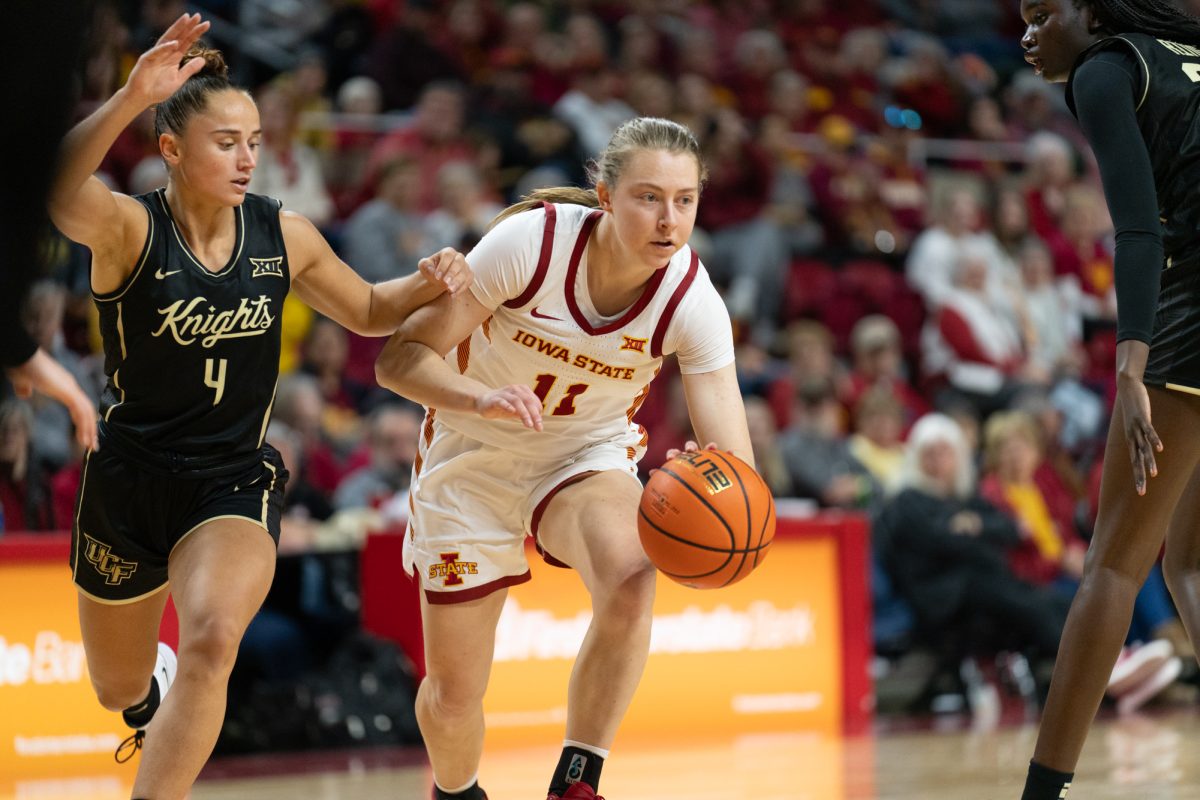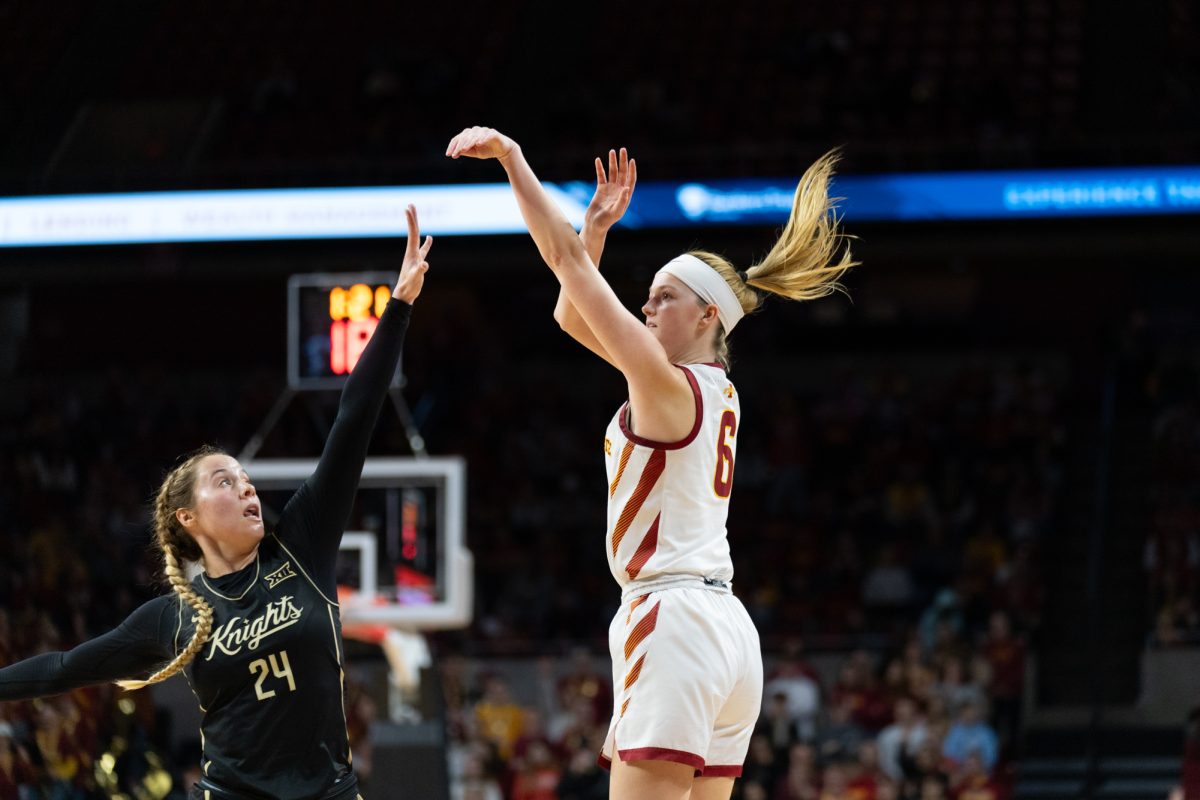Failed surgery leads to acceptance, success for Goldstein
September 11, 2012
Emily Goldstein has accepted reality.
The Orange County, Calif., native led the ISU soccer team in goals, assists and points during her freshman campaign in 2010. But throughout that season, Goldstein had experienced episodes during which her feet would go completely numb in the middle of games and practices, hampering her ability to run or even lift her feet off the ground at times.
“They weren’t really sure what it was,” Goldstein said. “They tried a bunch of different things, and we just decided that I would wait it out until the end of season, and then go to doctors and specialists and try to figure out what was going on.”
Once the season ended, Goldstein was diagnosed with a condition known as “compartment syndrome,” which causes the nerves, blood vessels and muscles in both of her shins to compress, so much that she begins to lose feeling in her feet.
She had experienced issues with numbness in her feet in high school but not with nearly as much regularity as when she began playing at Iowa State, something she attributes to the increased intensity of training.
After surgery in January 2011, Goldstein began a gradual rehabilitation process, that lasted about four months, to get herself ready for the start of her sophomore season. Her rehab assignment included an array of tasks, from hip-strengthening and upper-body weights to swimming exercises and eventual running; Goldstein’s recovery was a steady process.
“I was on crutches for two weeks, and then I was able to just start walking again, but that was basically the extent,” Goldstein said. “Then a month and a half in, I was able to start running again. Basically it was just getting myself back into shape and seeing how my shins were feeling and how my feet were feeling.”
Goldstein’s performance during her sophomore season paled in comparison to that of 2010. After scoring six goals and recording five assists her freshman year, Goldstein tallied just two goals and four assists in 2011. She also received a reduction in playing time by almost 400 minutes, an average of more than 20 minutes per game.
“She went into surgery knowing: It might work, it might not work,” said ISU coach Wendy Dillinger, who has coached Goldstein for the past three seasons. “Last fall was a little frustrating for her, just because she was expecting to come in and not have the same issues that she had had before, so I think it definitely affected her mentally.”
Aside from her decrease in scoring, the 2011 season was an immensely frustrating time for Goldstein.
After months of hard work and rehab, Goldstein still felt no difference in her condition; her feet were still going numb. She was forced to come to the realization that her condition was not going away.
Her surgery had failed.
“That was really tough for me mentally and physically,” Goldstein said. “Every doctor that I went to was like: ‘Oh, no, you’ll get better one day. You’ll feel better.’ So every game, I was kind of mentally hoping that this would be the day that my surgery worked.”
That day has yet to come. Goldstein still plays with compartment syndrome and, despite that fact, has managed to be one of the Cyclones’ most dynamic scorers this season.
Goldstein is the team’s second-leading scorer with three goals and one assist and has established her role as a leader among her teammates.
“She’s been doing great,” said ISU junior Erin Green, who has shared the midfield with Goldstein since the two were freshmen in 2010. “We need her on the field. She’s a really great leader when we’re all looking for something in that regard. On and off the field, she’s a big influence for us.”
Goldstein’s acceptance of her condition has allowed her to prepare and perform in a positive way. Now that she knows what to expect during the game, she is better able to adapt to her unusual situation.
“I think I’m better because of it,” Goldstein said. “I know what I need to do now, and I’ve prepared more this year. I’m more aware of my body and the things that I have to do to be able to succeed in soccer.”







